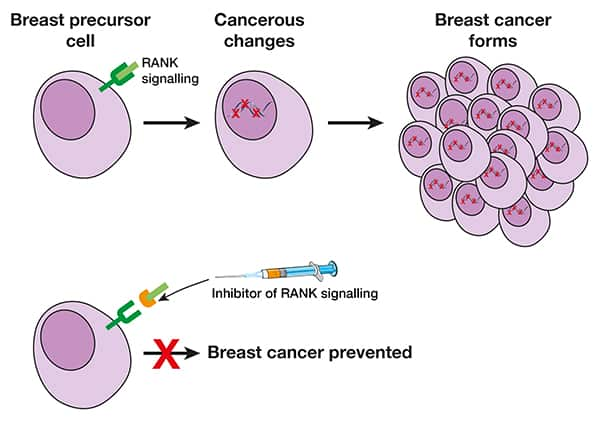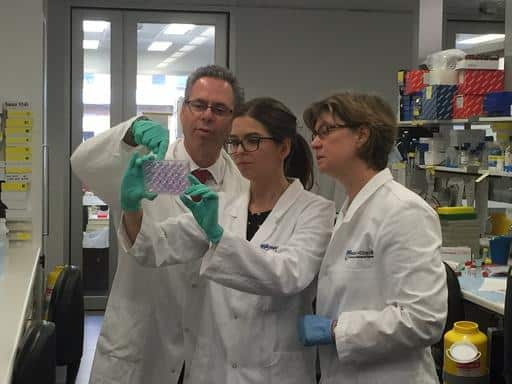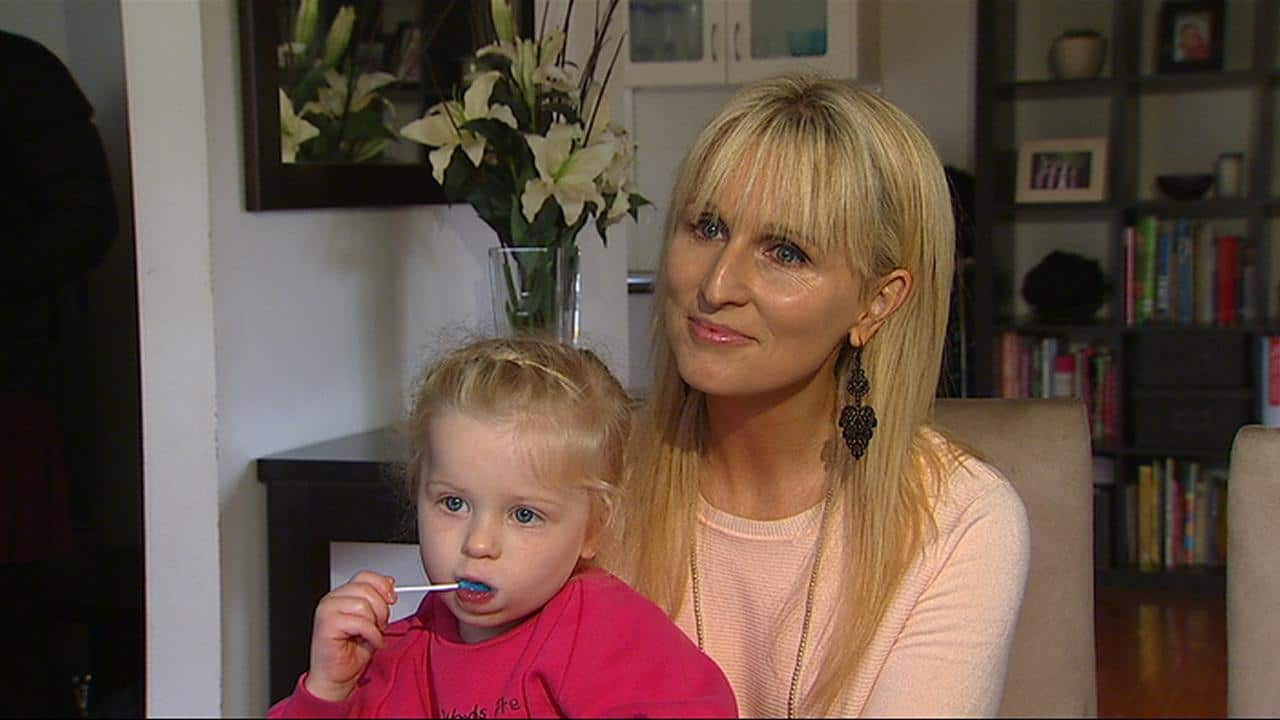Melbourne researchers have discovered a drug used to treat osteoporosis can stop the growth of cancer cells in women with the BRCA-1 gene.
Walter and Eliza Hall Institute PHD student Emma Nolan is on the research team, and was the first to disvcover that at least two thirds of the mice being tested with the drug, failed to develop breast cancer.
"I had to stop myself from jumping up and down it was incredibly exciting for all of us," she said.
The BRCA-1 gene expresses a protein called rank, that leads to cancer formation. A pilot study found injecting the drug denosumab reduced the proliferation of cancer cells.
"I think this has been a holy grail for the breast cancer field because these women have very few options available," breast cancer researcher Professor Jane Visvader said.

One in 400 women carry the faulty gene, Professor Visavader said it was hoped the use of the drug would delay the need for breast and ovarian removal surgery.
"This is a critical time in a woman's life in terms of child bearing years, so if we can at least bide time for them that would be a critical breakthrough," she said.
While results from lab tests have been positive, they need to be recreated in a large scale human trial for the drug to be marketed for cancer prevention.

"It really the beginning of an important next step which is to test this in the clinic and see if it really pays out for patients with a faulty BRCA-1 gene," oncologist Professor Geoff Lindeman said.
Kylie Gellie is a carrier of the breast and ovarian cancer gene - BRCA-1, which claimed the lives of mother and her grandmother.
"There is a bit of dark cloud over you, knowing what happened to the women in my family I just thought it was inevitable I would get cancer," she said.
"This medication gives me a bit of hope that there may be some options for my daughters"
She made the decision to have a double mastectomy as well removal of her ovaries and fallopian tubes.
The international study will involve at least 1500 women who carry the BRCA-1 gene, and may take five to 10 years to yield results, but for Ms Gellie it will be worth the wait.
"This medication gives me a bit of hope that there may be some options for my daughters where they don't have to have such invasive surgery as I had to have," she said.

